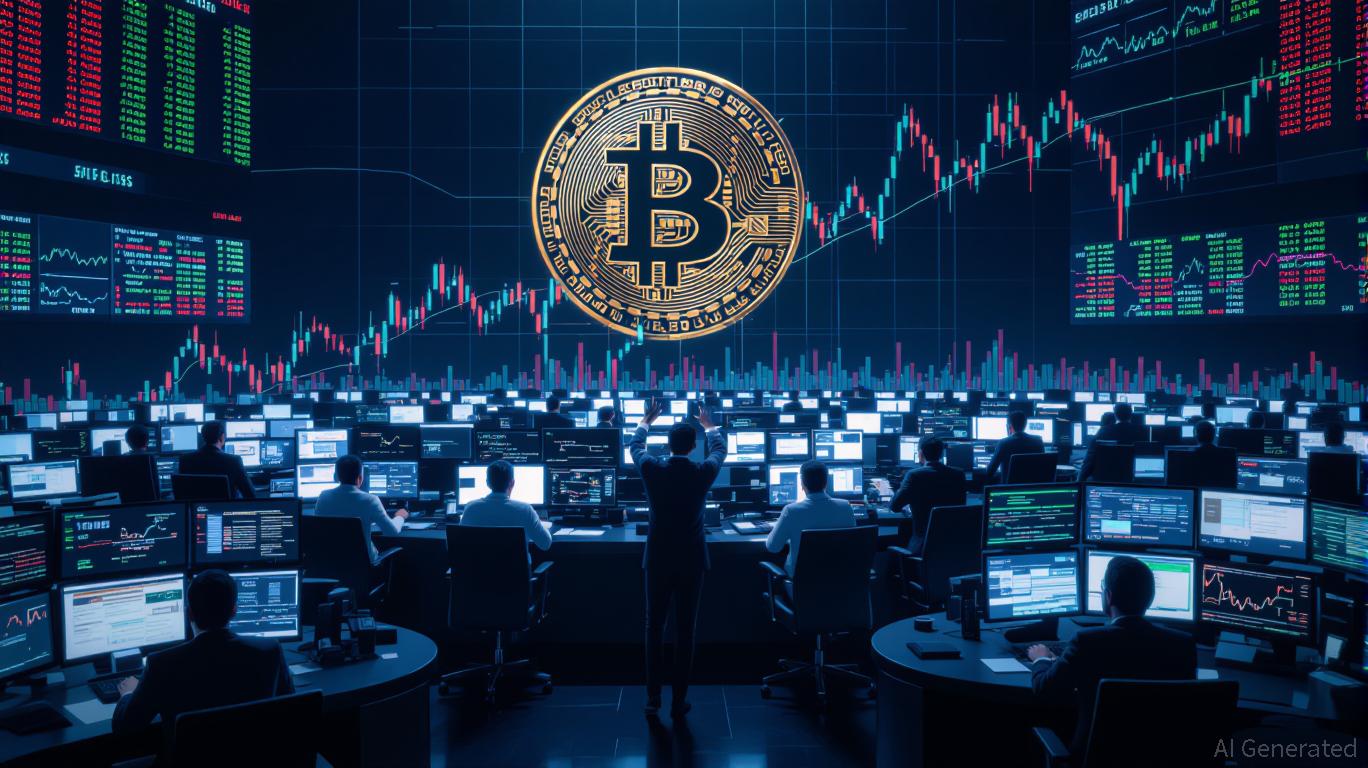Bitcoin’s Soaring Prices in November 2025: Driven by Institutional Investment or Pure Speculation?
- Bitcoin's November 2025 price swing from $145,000 to $81,000 sparks debate over institutional adoption vs. speculative frenzy. - Institutional investors prioritize Bitcoin infrastructure (e.g., Galaxy Digital's $72M Canaan investment) but ETFs saw $4.34B outflows amid macroeconomic risks. - Retail speculation drove November gains but exacerbated volatility, with $19B in liquidations during a mid-month flash crash linked to U.S.-China tensions. - Macroeconomic factors like Fed rate policies and global tra
Institutional Infrastructure and Short-Term Moves
More institutional players are now acting as long-term backers of
Yet, the latest figures paint a more complicated picture. Despite these foundational steps, institutional Bitcoin ETFs
Retail Trading and Recurring Trends
At the same time, retail traders remain a driving force. Historically, November has been a strong month for

Macroeconomic Challenges and a Shifting Landscape
As more institutions enter the space, Bitcoin’s sensitivity to global economic trends has increased. Its price now moves in closer alignment with interest rate expectations and international trade developments. For example, the Federal Reserve’s decision to maintain a hawkish policy in 2025 has made Bitcoin more susceptible to capital shifting into safer investments.
Conclusion: Navigating Uncertainty
The dramatic price action in November 2025 reflects both authentic institutional engagement and persistent speculative behavior. While investments in infrastructure and clearer regulations point to long-term optimism, ETF outflows and macroeconomic headwinds reveal ongoing doubts. For investors, the main lesson is that Bitcoin’s outlook depends on how well it can balance these competing influences. Institutions may help steady the market, but speculation and sensitivity to global events remain significant risks.
Disclaimer: The content of this article solely reflects the author's opinion and does not represent the platform in any capacity. This article is not intended to serve as a reference for making investment decisions.
You may also like
The Iceberg Phenomenon: Unseen Dangers of AI’s Labor Force Surface Across the Country
- MIT's Iceberg Index reveals AI could replace 11.7% of U.S. jobs ($1.2T in wages), impacting sectors like finance and healthcare beyond tech hubs. - The tool maps 151M workers across 923 occupations, highlighting hidden risks in routine roles (e.g., HR, logistics) versus visible tech layoffs. - States like Tennessee and Utah use the index for reskilling strategies, while C3.ai partners with Microsoft to expand enterprise AI solutions. - Despite C3.ai's market expansion, its stock faces volatility, reflect
Where Saving Animals and Supporting People Come Together: The Gentle Barn's Comprehensive Approach
- The Gentle Barn, a California-Tennessee sanctuary, merges animal rescue with human emotional healing through acupuncture, mobility aids, and therapeutic interactions. - Its volunteer programs and $75 season passes support financial sustainability while fostering compassion between humans and rescued animals like turkeys and hoofless goats. - The nonprofit's holistic model attracts attention as a case study in combining veterinary care with mental health initiatives, despite scalability challenges in nonp

XRP News Today: With Tether and USDC under examination, RLUSD from the UAE stands out as a regulatory-compliant stablecoin option.
- Ripple's RLUSD stablecoin received ADGM approval as a regulated fiat-referenced token in Abu Dhabi, enabling institutional use in payments and treasury management. - Pegged 1:1 to the USD with NYDFS oversight, RLUSD ($1.2B market cap) offers compliance-driven alternatives to USDT/USDC amid global regulatory scrutiny. - UAE's ADGM-DIFC regulatory framework positions the region as a crypto innovation hub, with Ripple expanding partnerships through Zand Bank and Mamo fintech . - The approval aligns with UAE

ZK Atlas Enhancement: Driving Institutional Embrace Amid the Blockchain Scalability Competition
- ZKsync's Atlas Upgrade solves throughput bottlenecks with Airbender RISC-V zkVM, enabling 15,000+ TPS at $0.0001 per transaction. - Modular ZKsync OS reduces gas fees by 70% since 2023, enabling real-time financial applications while maintaining regulatory compliance. - Deutsche Bank and UBS test ZKsync for asset tokenization, highlighting its institutional appeal through privacy-preserving ZK features and sub-second finality. - Upcoming Fusaka upgrade aims to push TPS to 30,000 by December 2025, but reg
